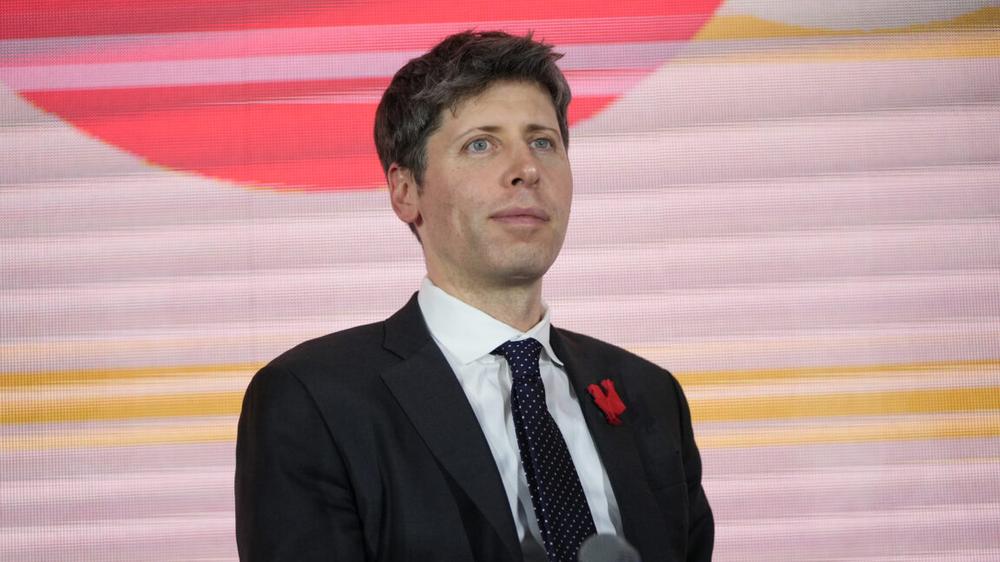Last Thursday, OpenAI CEO Sam Altman told reporters at a private dinner that investors are overexcited about AI models. "Someone" will lose a "phenomenal amount of money," he said, according to The Verge. The statement came as his company negotiates a secondary share sale at a $500 billion valuation—up from $300 billion just months earlier.
"Are we in a phase where investors as a whole are overexcited about AI? My opinion is yes," Altman told the journalists, comparing the current market to the dot-com crash of the 1990s. Wired reported that he also predicted his company will spend "trillions of dollars on data center construction in the not very distant future" and that ChatGPT will soon serve "billions of people a day."
For context, Facebook serves about 3 billion monthly active users. Altman's projection would require ChatGPT to reach nearly half the world's population as daily users (not monthly, like Facebook), which is an extraordinarily optimistic outlook.
Altman's bubble comments happened to land just before Fortune covered new MIT research showing widespread enterprise AI failures. The study, titled "GenAI Divide: State of AI in Business 2025," found that 95 percent of enterprise AI pilots fail to deliver rapid revenue acceleration. The research analyzed 300 public AI deployments, surveyed 350 employees, and included 150 interviews with business leaders, although Financial Times columnist Robert Armstrong noted this week that the MIT report "reads like something given away on the 'research' page of a large consultancy." Its conclusions are fairly obvious, he said: People like ChatGPT for basic tasks and hate complicated enterprise systems, and companies that try to build their own AI usually fail.
The study attributes these failures to implementation problems rather than model quality. "The core issue? Not the quality of the AI models, but the 'learning gap' for both tools and organizations," Fortune wrote about the study. Purchased AI tools succeed 67 percent of the time, while internally built systems succeed only one-third as often. This isn't necessarily an indictment of AI technology as a whole—it's potentially an indictment of corporate IT departments thinking they can out-engineer existing applications from AI service providers like OpenAI.
Still, the coincidence between Altman's statement and the MIT report reportedly spooked tech stock investors earlier in the week, who have already been watching AI valuations climb to extraordinary heights. Palantir trades at 280 times forward earnings. During the dot-com peak, ratios of 30 to 40 times earnings marked bubble territory.
The apparent contradiction in Altman's overall message is notable. This isn't how you'd expect a tech executive to talk when they believe their industry faces imminent collapse. While warning about a bubble, he's simultaneously seeking a valuation that would make OpenAI worth more than Walmart or ExxonMobil—companies with actual profits. OpenAI hit $1 billion in monthly revenue in July but is reportedly heading toward a $5 billion annual loss. So what's going on here?
Looking at Altman's statements over time reveals a potential multi-level strategy. He likes to talk big. In February 2024, he reportedly sought an audacious $5 trillion–7 trillion for AI chip fabrication—larger than the entire semiconductor industry—effectively normalizing astronomical numbers in AI discussions.
By August 2025, while warning of a bubble where someone will lose a "phenomenal amount of money," he casually mentioned that OpenAI would "spend trillions on datacenter construction" and serve "billions daily." This creates urgency while potentially insulating OpenAI from criticism—acknowledging the bubble exists while positioning his company's infrastructure spending as different and necessary. When economists raised concerns, Altman dismissed them by saying, "Let us do our thing," framing trillion-dollar investments as inevitable for human progress while making OpenAI's $500 billion valuation seem almost reasonable by comparison.
This dual messaging—catastrophic warnings paired with trillion-dollar ambitions—might seem contradictory, but it makes more sense when you consider the unique structure of today's AI market, which is absolutely flush with cash.
A different kind of bubble
The current AI investment cycle differs from previous technology bubbles. Unlike dot-com era startups that burned through venture capital with no path to profitability, the largest AI investors—Microsoft, Google, Meta, and Amazon—generate hundreds of billions of dollars in annual profits from their core businesses.
Microsoft alone plans to spend $80 billion on AI data centers this fiscal year. These companies can potentially sustain losses from AI development for years without facing the cash crises that typically trigger bubble collapses.
"Back then, you had a lot of over-leveraged situations. You didn't have a lot of companies that had earnings," Citi's Rob Rowe said on CNBC. "Here you're talking about companies that have very solid earnings, very strong cash flow."
The structural difference matters. When the dot-com bubble burst in 2000, hundreds of companies vanished overnight because they ran out of money. Today's AI investors can absorb losses that would have killed entire companies two decades ago. If there is a bubble, it might deflate gradually over years rather than pop in a sudden crash.
After all, deep pockets don't guarantee product success. OpenAI's CEO recently acknowledged problems with the messy GPT-5 launch, which others are using as evidence that the AI industry is in trouble. But the AI market is now much larger than just OpenAI, with Google, Meta, and Anthropic among those fiercely competing for customers.
Despite the struggles with AI in enterprise and his own bubble warnings, Altman remains bullish on AI's long-term trajectory. The technology continues to improve despite its drawbacks and misapplications, and major companies keep increasing their investments rather than pulling back. Whether current valuations make sense in the short term is one question; whether AI will eventually transform the economy is another entirely.
"I do think some investors are likely to get very burnt here, and that sucks. And I don't want to minimize that," Altman told the reporters last week. "But on the whole, it is my belief that... the value created by AI for society will be tremendous."

 Shopper adds “I did that!” sticker with Trump’s face to strip steak in Publix grocery store
Shopper adds “I did that!” sticker with Trump’s face to strip steak in Publix grocery store